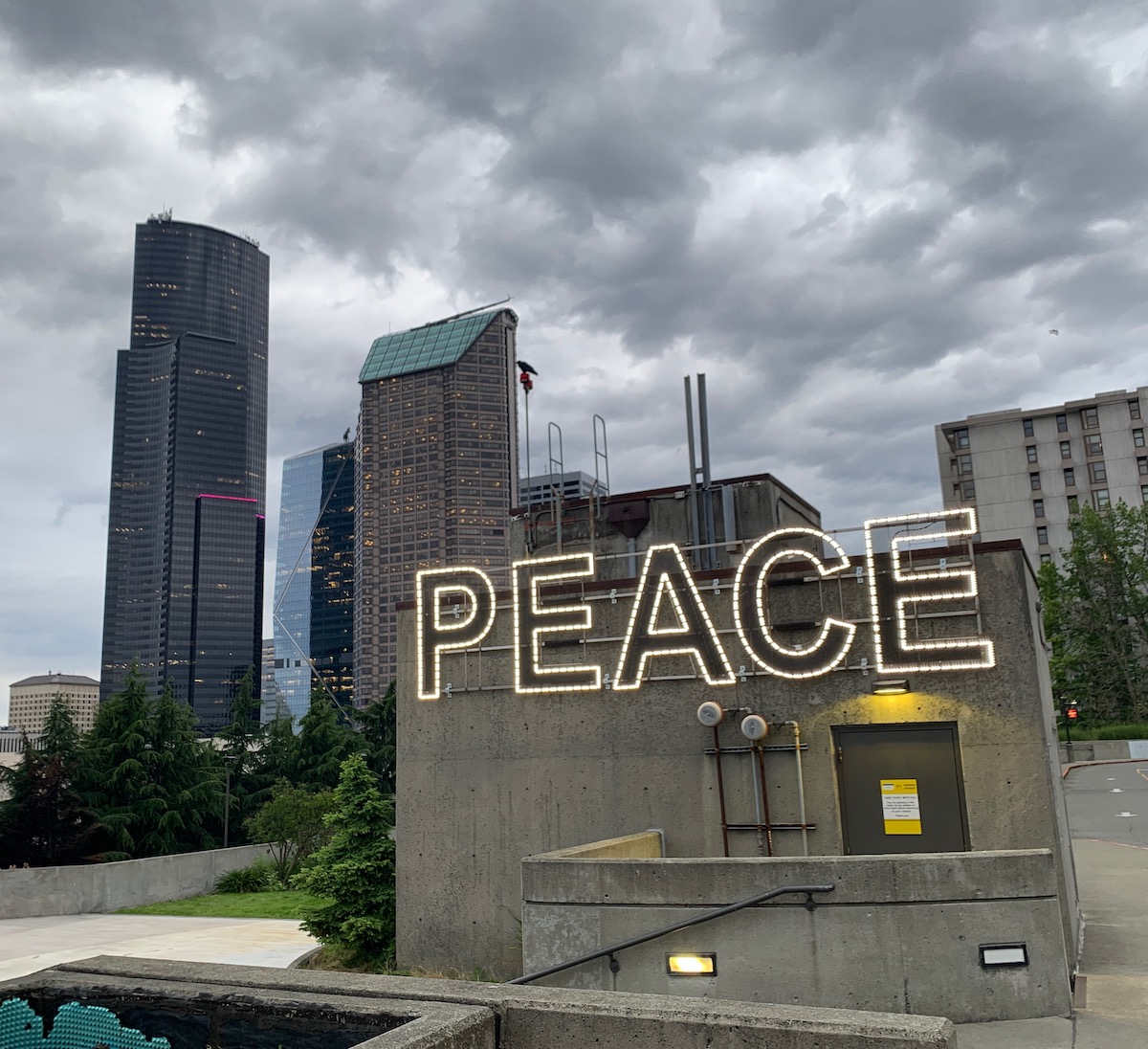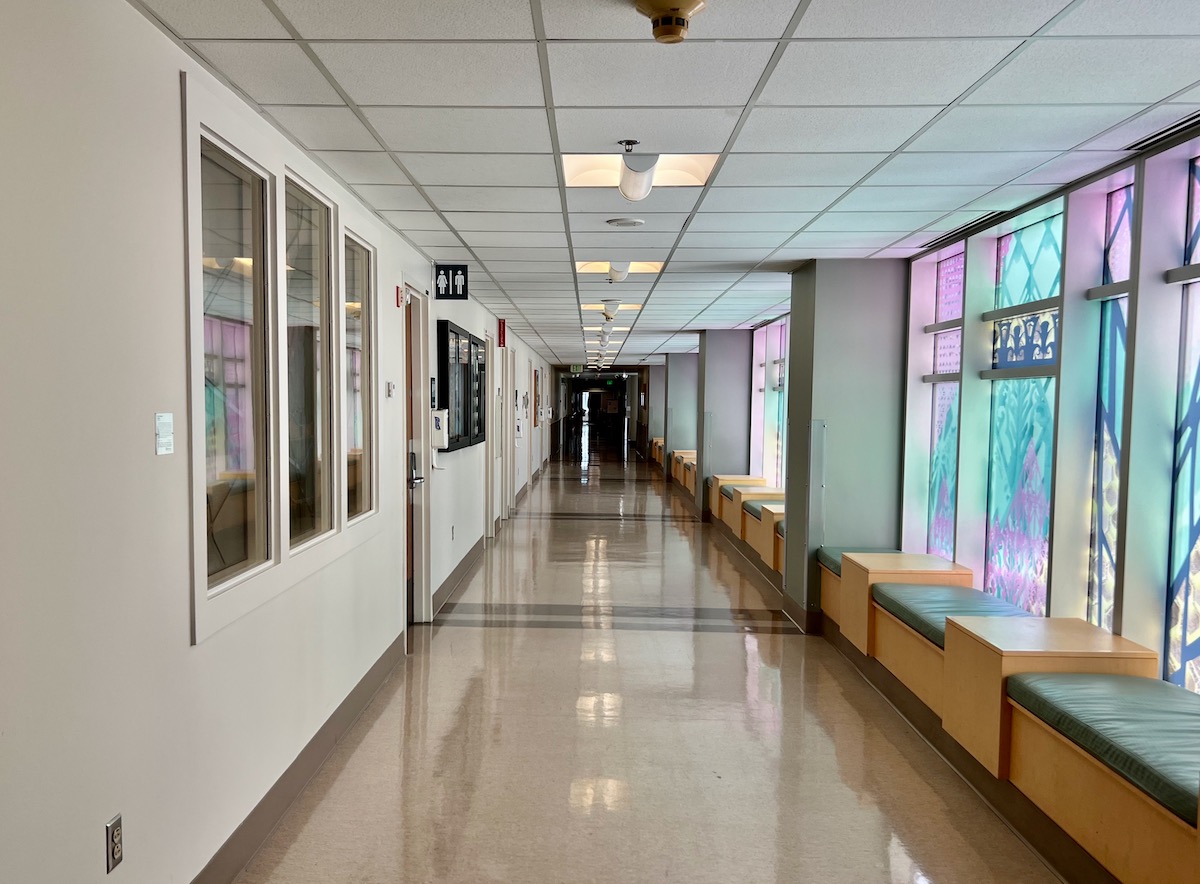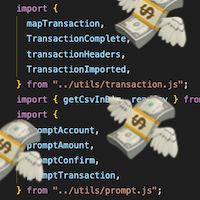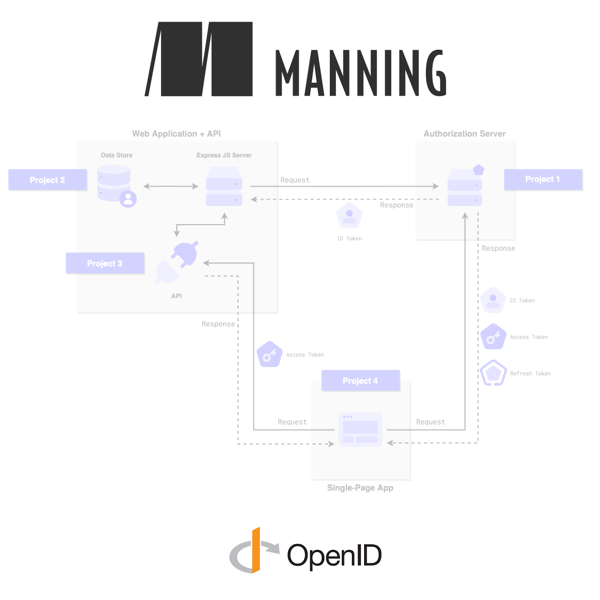👋 I'm curently looking for a new role. Hire me!
On June 7th of this year, my mom was taken to the hospital after she was found on the floor of her apartment by family. She suffered a major stoke at some point in the previous 24 to 48 hours and was mostly unresponsive when the medics arrived. At the hospital, she had an emergency craniectomy to reduce swelling on her brain and, when I saw her that evening, she was still mostly unresponsive but now had a massive, stapled incision that traced down the middle of her head and back around under her ear. I went home that night shaking, crying, and feeling like the earth had disappeared right out from under me.

Since that day, I've become my mom's co-caregiver, medical advocate, and financial administrator. I have learned an enormous amount about myself, Medicare, hospitals, assisted living facilities, the power of attorney process, medical advocacy, mental health, and so much more. While a lot of what I went through was unique, I wanted to share both my experience and what I learned so others who find themselves in the same position might feel a bit more prepared.
Note: I am not a doctor or a lawyer, just a geek who went through a thing. Nothing on this page constitutes legal or medical advice, just things I've learned and experienced.
What do to before this happens
This is the section for anyone who is not currently going through this but are in a position where a parent or spouse or other adult will need to rely on you if something like this does happen to them. This is also the section for those of you who might feel like they are decades away from something like this happening. You just never knew; be prepared.
First and foremost, get the power of attorney (POA) in order. For adults that you will be responsible for, make sure they have one that indicates you (and/or other family members) and make sure you have a copy. Scan it immediately and save it in an online file manager like Dropbox, Google Drive, or similar. There are different types of POA and the document itself will spell out what person has what power. You will need the ability to make medical and financial decisions on their behalf as this will be key to moving things forward.
There are many types of POA documents and I am not in a position to give legal advice but a single, durable POA that names you as the agent probably covers what you need. Based on my own experience and some off-the-record advice from a helpful employee at the bank, a co-POA situation where two people are named equally (instead of primary and secondary) can make things much more complicated, especially if one of the people is not physically nearby or easy to contact.
Having a POA document is a very important first step but it's not everything you need to start making decisions. That POA document needs to be officially on record at each of the different organizations that you will be working with. The process for getting that record could take anywhere from no time - just show the document - to weeks. Banks and other financial institutions take this stuff seriously, and for good reason. Start this process right away for:
- The hospital they are at
- Financial institutions (banks, brokers, etc.)
- Health insurance
Next, make sure you talk with them about what they want, both in terms of medical care and procedures, quality of life, and long term care. This might come in the form of a advance health directive document for acute care (things like the surgery my mom needed or life support) while in the hospital. But during this whole situation, you'll find that a document like that can only cover so much. You might have to deal with:
- Assisted living facilities
- Mental impairment
- Pain management
The NIH has a great resource for advance care planning that talks about the kinds of questions you should have answers for. You should talk this through with anyone you might have to make these decisions for.
Mindset
You will probably learn all of this on your own throughout the ordeal. I found a lot of peace once I internalized these lessons, peace that probably can't come from just reading a list. Still, maybe these will help:
- Your life has changed forever, one way or another. You can accept this or fight it but the truth will not change.
- There will be big, bright, shiny silver linings to this experience if you look for them. You'll feel guilty for finding positivity in all of this pain and trauma; get past this guilt as soon as possible.
- You will make mistakes, drop balls, and forget things; you are under a lot of pressure right now during a traumatic experience without enough information. Forgive yourself quickly.
- If you have a family of your own, there will be heart-wrenching conflicts between your job as a parent/spouse and your job as a caregiver. You will need to find a way to balance these as best as you're able. Communication is key.
- You will need help from people. If you're already not good at asking for help, this will all become harder.
- You will find yourself wishing this would have never happened. This might lead you to some dark thoughts about what could have made that happen. Forgive yourself ahead of time for these thoughts.
Keep notes + records
I had the benefit of already being a prolific note-taker so my natural instinct was to start writing as soon as possible. I journaled, took notes during medical conversations, recorded events, and maintained a mom-specific to-do list. My neurotic and compulsive note-taking has both pros and cons, though, so how I did it might not be a great fit for you.
At the very least, record ...
- Expenses incurred (parking, transportation, professional services)
- Notes about current condition, future procedures, etc along with the provider's name and the date
- What needs to happen immediately, soon, and at some point
- Questions for medical staff that come to you suddenly or from other family members, friends, etc; record the answers as well
You might find that your brain's memory-making process is operating differently during this time and you'll be glad that you focused on writing things down rather than trying to jam them in your already-full and traumatized brain. You might also find that you will need to connect the dots between different medical institutions, financial institutions, and other people. Having names, numbers, questions, and answers written down as completely as possible can save some of your sanity down the road and make it easier to use your brain for things other than retaining facts.
Also, posterity, if you're into that sort of thing.
Working with hospitals, care facilities, and other providers
If you have the same experience as I did, you will find that the vast majority of individuals you work with in these contexts are talented and caring and want the same positive outcomes that you do. You will also find, however, that the system or company that they all operate in is a confusing, heartless, discombobulated, near-sentient monster made out of forms, red tape, automated voice menu systems, and notifications. This dichotomy is felt everywhere and the staff in these facilities are well aware of it with very little power to change it.
So, your best way to deal with this depends on whether you're dealing with a person or a system. When you're talking one to one with a doctor, LNP, nurse, NA, or other direct provider, keep this mantra running through your head:
- This person has a very hard job in a very weird industry
- This person regularly gets treated like shit by other caregivers like myself
- This person wants my loved one to get better just like I do
- This person can have a bad day just like I can
- This person will be more inclined to help me and my loved one if I'm kind and patient with them
- This person is likely frustrated with the same parts of the system that I am
- This person has been specifically trained to give me clear and concise medical information without emotions
Armed with this, you can come into conversations in your anxious and emotional state and still have a good outcome. You will feel good about yourself for doing the right thing and getting what you needed and the provider will be thankful that you're not another asshole and be more inclined to work with you more closely.

Here is part of what I wrote to the hospital once my mom was released to give you a bit of an idea of the rollercoaster we were on during our visit there.
For people who are not familiar with that world, the hospital is a cold, loud, terrifying place, and doubly so if you're the one receiving treatment. Your body is a machine and it's under the control of a big, scary system that's primarily there to treat a machine. Alarms, PA announcements, procedures ... it all combines to give you a sense of dread for what's coming next. After weeks of being in this environment, it starts to weigh very heavily on your psyche.
If it weren't for people like you and the vast majority of the staff that I interacted with during her stay, this would have been more than I or my mom could handle.
Thanks to the care and honesty and communication I experienced, I always felt like my mom was in very good hands, even when she looked like she would have rather died than go through this ordeal. At every turn, I was asked if I was comfortable, if I had any questions, if I needed anything. I saw people treating my mom with care, talking to her like a person despite her aphasia, and giving her choices wherever possible.
With an injury like this, you have to find positivity and hope wherever you can. I never felt like anyone tried to make me feel better just for the sake of it. I was given vague but kind and clear answers when the prognosis was unclear. And I was told when I was doing a good job as a caregiver, something that from the first minute of this experience was the most important job in my world. Your unit in particular gave me hope that, with hard work and the right therapy, she could actually end up OK.
You all work with people during their most vulnerable and frightened time, angry at circumstances they couldn't control, facing the indefinite loss of functions of their body that they took for granted for their whole life. The heart and patience you have to have to do that job, all while helping caregivers navigate this horrifying new world, is impossible to quantify. Seeing my mom go through what she has so far has been the most difficult thing I've ever lived through and without the support and smiles and kind words I received, I would have been in a much, much worse condition than I am in now.
I hope that if you are going through something like this now that you are able to see your care team and the surrounding staff as teammates through this ordeal, rather than a force to reckon with. I think some (most?) of that comes down to your approach.
Learn to be an advocate
Sometimes you need to be persistent and repetitive to get what you need. For all of its talented people, policies and procedures, and technology, acute medical care in a hospital is still an absolute circus focused on treating the human body as a machine. If your loved one is non-communicative or not responsive, as my mom was for most of her visit, your job is incredibly hard and incredibly important.
Your job as an advocate is to speak up on behalf of the patient. In the case of my mom, she was not able to speak for most of her hospital stay so she couldn't tell them that she has claustrophobia and being strapped to a bed is like torture for her. She couldn't tell them that the constant alarms are making it hard to sleep or that she wants the door open so she can see what's going on in the hall, or that she likes iced tea, not apple juice. Each time I visited I would fix up her room, fill out meal preferences, and change the lights or shades.
But that's the easy part of the job, expressing preferences. The hard part comes when you get the funny feeling that things around you aren't quite as well orchestrated as you would expect. You might need to tell a doctor what you heard from an LNP just the day before and hold your tongue when they look surprised. You might need to explain (kindly) to multiple nurses that your mom is, in fact, able to get herself to the bathroom just fine if she is unstrapped. You might need to stand up to specially-trained staff and question the approach that lead to your loved one ending up in tears.
There is no instruction guide to doing all of this correctly and there is no guarantee that you will cover all the bases and connect all the dots. Just the fact that you need to do so much unpaid and unscheduled work might shake any confidence you had left in health care. You might ask yourself, what happens to the people that don't have someone like me around?
One technique that helped me was asking questions, all of the questions. I found that phrasing my comments as a question made it easier to call attention to things without resorting to accusations. In some cases, my assumptions were wrong so the question let me save face and get more information. In others, it let the person I was talking to know that I was having a problem and let them come to me with an explanation or solution. If you're curious, confused, or suspicious, just ask the question.
Parting words: the same but different
When I started collecting notes and thoughts for this post, I expected pages and pages and pages of experiences and emotions and helpful words to pour out of me. This journey has changes me in so many ways and I feel like I have a lot of support within me to offer someone going through something similar.
But when it came time to put this all down into a helpful guide on a technology-focused blog, I was left feeling a bit flat. How could you possibly boil down some of the hardest months of my life into something that would help someone just starting down that road? And how much of this advice is applicable versus just life lessons I was due to learn?
So, in the end, I didn't worry too much about writing the perfect companion piece to the unique suffering that is helping a loved one through a traumatic event like this. The fact is, I reached out desperately to so many people around me and was met with a tidal wave of support, advice, love, and information that made this whole thing go about as good as one could expect. The advice above is tactically helpful across a range of situations, I believe, and might cover some ground that you have not considered before. In that way, I hope some of my words will come to you at the right time and help you in some small way.
If you are going through this now or are worried that you might in the near future, I don't think there is really anything I could tell you that will truly prepare you for what's to come. You will feel strong, very strong, weak, and very weak. You will be surprised by what you're capable of one minute and then disappointed by yourself the next. You will kick yourself over and over for not spending more time with this person, not asking those questions you've been meaning to ask, not learning about their history and yours. You will do all of this or none or it, or part of it and something else.
But you will go through it, kicking and screaming or standing tall or both. And you will change, for better or worse or both. You will never quite be the same after this and there's nothing you can do about that but accept it.
I wish you the best.

< References >
< Take Action >
Comment via:
Subscribe via:
< Read More >
Tags
Newer

Mar 22, 2023
Scratching an Itch: Command Line Budgeting
After over a decade of trying to budget using existing tools, I decide to write my own in TypeScript. It turned out great!
Older

Aug 19, 2022
Published: Federation and Single Sign-On with OpenID Connect
After a years worth of work and a number of delays (on my end), I finally published my first liveProject with Manning!